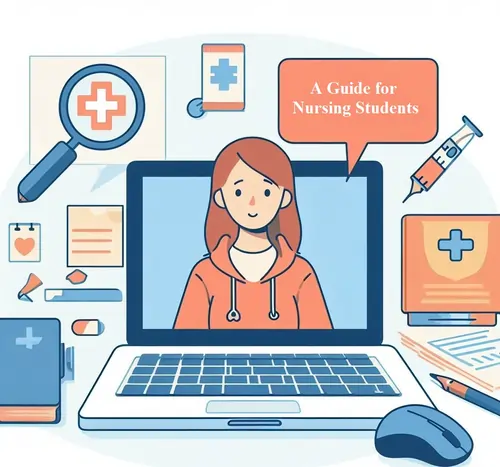Recognizing Clinical Depression: A Guide for Students in Nursing

Clinical depression, or Major Depressive Disorder (MDD), is a profound mental health condition that impacts millions globally, presenting pervasive feelings of despair and disinterest in life. It is a complex disorder, necessitating comprehensive understanding and approach in healthcare settings, particularly in nursing, where firsthand interactions with affected individuals are frequent. This article intends to equip nursing students and healthcare professionals, offering crucial help with mental health nursing assignment, by providing pivotal knowledge and insight into identifying the multifarious symptoms of clinical depression, comprehending its underlying causes and associated risk factors, exploring the detrimental consequences of untreated depression, and navigating through the available treatments and management strategies. Gaining a deeper understanding of clinical depression is instrumental for nursing professionals in rendering informed, empathetic, and effective care, thereby contributing to the overall well-being and recovery of the individuals afflicted.

Identifying the Symptoms of Clinical Depression
Identifying the symptoms of clinical depression is crucial in mitigating its impact. Clinical depression manifests through a myriad of symptoms divided mainly into physical and emotional categories. Physical symptoms include persistent fatigue, changes in weight or appetite, and disturbances in sleep patterns, which are often debilitating and can hinder daily life activities. On the emotional side, individuals experience persistent feelings of sadness, emptiness, or hopelessness, coupled with a loss of interest or pleasure in activities, impacting overall life quality. These symptoms, whether appearing isolated or conjointly, are crucial flags indicating the presence of this severe mental health condition, and recognizing them is the first step towards intervention and management, which is paramount in nursing practice.
Physical Symptoms
Physical manifestations of clinical depression are often overlooked, but they are crucial indicators of an individual’s mental state. People with depression may exhibit chronic fatigue, changes in weight or appetite, and sleep disturbances. Students should be aware of these signs, as they can be instrumental in identifying a potentially depressed individual.
Chronic Fatigue in Depression: One of the pervasive, yet often understated, symptoms of depression is chronic fatigue. This isn't just feeling "a bit tired" after a long day; it's a profound and unrelenting sense of exhaustion that permeates every facet of an individual's life. Those afflicted describe it as feeling drained or weighed down, with even the simplest tasks appearing herculean. Their mental and physical energies are sapped, making daily routines and responsibilities challenging to maintain. This fatigue is more than just feeling drowsy—it can manifest as cognitive sluggishness, difficulty in concentrating, and a pervasive lethargy. It's essential for caregivers and loved ones to recognize this symptom as a possible sign of depression and not merely as laziness or lack of motivation.
Sleep Disturbances and Their Relation to Depression: Sleep is fundamental for mental and physical well-being, and disturbances in sleep patterns can be both a cause and a symptom of depression. Insomnia, characterized by difficulty falling or staying asleep, and hypersomnia, an excessive desire to sleep, are common among depressed individuals. The cyclical nature of sleep disturbances can further exacerbate depressive symptoms. A lack of restorative sleep can lead to increased irritability, diminished cognitive function, and a decreased threshold for stress. Conversely, depression can result in racing thoughts or feelings of hopelessness that disrupt the sleep cycle. It's crucial to understand the intricate relationship between sleep and depression, as addressing one can often alleviate the other.
Emotional Symptoms
The emotional symptoms of clinical depression are often the most discernible, yet deeply devastating. They extend far beyond transient emotional responses to daily life events, indicating a profound, pervasive disturbance in emotional regulation and experience. They are the unseen wounds of the mind, altering perception, cognition, and interpersonal interactions, severely diminishing the quality of life of the affected individual.
Persistent Sadness
Persistent sadness is more than occasional feelings of unhappiness; it is a continuous, profound sense of sorrow, emptiness, or despair that pervades every moment of one’s existence. It is not merely an emotional state but a lens through which the entire world appears bleak and devoid of joy. This symptom goes beyond the realms of normal sadness, making every moment a struggle and every effort seem futile. Individuals feel trapped in their own minds, shackled by a pervasive gloom that seems unshakeable. It impacts their thoughts, feelings, behaviors, and relationships, making everyday activities and interactions a herculean task.
Loss of Interest (Anhedonia)
Anhedonia, the loss of interest or pleasure in activities one previously found enjoyable, is another critical sign of clinical depression. It makes hobbies, social activities, and even basic human interactions seem pointless and unappealing. This symptom is particularly insidious as it robs individuals of their passions, hobbies, and joys, leaving a void that is often filled with feelings of hopelessness and despair. Even the most thrilling activities seem mundane, and social interactions become burdensome. The joy derived from friendships, family, hobbies, and accomplishments seems to evaporate, leaving individuals feeling isolated and detached. This leads to a significant decline in quality of life, as individuals withdraw from their social circles and abandon their interests.
Implications and Impact
The implications of these emotional symptoms are extensive and multifaceted. They alter an individual’s self-perception, worldview, and interpersonal relationships, leading to a cascade of negative outcomes including isolation, impaired occupational and academic functioning, and severe mental anguish. Addressing these symptoms is not just about alleviating emotional pain, but also about restoring the individual’s ability to experience joy, connect with others, and find meaning and purpose in life. For nursing students and healthcare providers, understanding and recognizing these symptoms is paramount in providing empathetic, effective care and intervention to those suffering from clinical depression.
Causes and Risk Factors of Clinical Depression
Understanding the causes and risk factors of clinical depression is pivotal for both preventive and therapeutic approaches. Clinical depression emanates from a complex interplay of biological, psychological, and environmental factors. Biologically, genetics play a substantial role, with individuals having a family history of depression being at a higher risk. Neurochemical imbalances, primarily of neurotransmitters responsible for mood regulation, also contribute to depression onset. Hormonal fluctuations due to life phases or conditions can trigger depressive episodes. Psychologically and environmentally, exposure to chronic stress, trauma, and adverse life events are substantial contributing factors. The amalgamation of these elements can create a conducive environment for the manifestation of clinical depression, and recognizing them is crucial for early identification and intervention, significantly impacting treatment outcomes and prognosis.
Biological Factors
Numerous biological elements can contribute to the development of clinical depression, including genetics, brain chemistry, and hormone levels. An imbalance in neurotransmitters in the brain, which are chemicals that help regulate mood, can play a significant role in depression.
- Genetics: Having a family history of depression significantly increases the risk of developing the condition. Genetic factors are believed to account for about 40-50% of the risk for developing depression.
- Hormonal Changes: Alterations in hormone levels, such as those that occur during puberty, pregnancy, postpartum, and menopause, can contribute to the onset of clinical depression.
Environmental and Psychological Factors
External circumstances and psychological elements often interplay to precipitate depression. Stressful life events, traumatic experiences, and chronic anxiety can all foster the development of this mental health condition.
- Life Stressors: Significant life changes or stressful events, such as the loss of a loved one, divorce, or financial troubles, can trigger depression in susceptible individuals.
- Chronic Anxiety and Trauma: Prolonged exposure to anxiety and traumatic events can alter brain function and structure, leading to the development of clinical depression.
The Consequences of Untreated Depression
Untreated clinical depression can have severe and long-lasting consequences, impacting every facet of an individual’s life. The ramifications are not limited to deteriorated mental health but also extend to significant physical health declines, including heightened risk for chronic illnesses and weakened immune response. The interrelation between depression and chronic pain can create a vicious cycle of physical and mental suffering. Unmanaged depression also severely impairs social and occupational functioning. It strains relationships, leads to social withdrawal, and can severely impact productivity and performance in academic and occupational settings. In severe cases, untreated depression can lead to life-threatening situations and requires immediate attention and intervention. Understanding the gravity of these consequences is essential for prioritizing timely and effective treatment strategies.
Physical Health Decline
Unaddressed depression not only affects mental health but also has severe implications for physical health. It can lead to chronic pain, cardiovascular diseases, and a weakened immune system, hindering the body's ability to fend off infections.
- Cardiovascular Diseases: Depression is a risk factor for various heart conditions, and it can exacerbate existing heart problems, posing severe health risks.
- Chronic Pain and Illness: The interrelation between depression and chronic pain is significant. Depression can intensify pain perception, leading to a vicious cycle of physical and mental health decline.
Impaired Social and Occupational Functioning
Clinical depression can drastically impact social relationships and work or academic performance. It can lead to isolation, relationship conflicts, and diminished productivity and academic achievements.
- Isolation and Relationship Conflicts: Depression often causes withdrawal from social activities and can strain relationships with friends and family, leading to isolation and exacerbated mental suffering.
- Diminished Productivity: Concentration, decision-making abilities, and overall productivity are often severely impaired in individuals suffering from depression, affecting academic and occupational performance.
Treatment and Management of Clinical Depression
Managing and treating clinical depression necessitates a multifaceted approach, combining medical, psychological, and lifestyle interventions. Medications, particularly antidepressants, play a crucial role in modulating brain chemistry, addressing neurotransmitter imbalances and alleviating depressive symptoms. Psychotherapy, especially cognitive-behavioral therapy (CBT), aids individuals in recognizing and altering detrimental thought patterns and behaviors. Beyond clinical interventions, lifestyle modifications, including regular exercise, balanced nutrition, adequate sleep, and stress management techniques like meditation, are integral to holistic depression management. Social support, comprising strong, supportive relationships with friends and family, acts as a protective factor, significantly aiding recovery. Early intervention and a sustained, integrated approach are critical to managing clinical depression effectively, helping individuals regain control and improve their quality of life.
Medication and Therapy
Effective management of clinical depression often involves a combination of medication and psychotherapy. Antidepressant medications can help regulate brain chemistry, while therapy can provide coping mechanisms and strategies to manage stress and emotional turmoil.
- Antidepressant Medications: Medications, such as SSRIs, can help alleviate the symptoms of depression by balancing neurotransmitter levels in the brain, thus improving mood and emotional state.
- Cognitive-Behavioral Therapy (CBT): CBT is a widely used therapeutic approach for depression, helping individuals identify and change negative thought patterns and behaviors.
Lifestyle Modifications and Supportive Interventions
Implementing lifestyle changes and seeking support can significantly aid in managing depression symptoms. Regular exercise, a healthy diet, adequate sleep, stress management, and support from loved ones can all contribute to better mental health.
- Lifestyle Changes: Regular physical activity, balanced nutrition, adequate sleep, and stress reduction techniques such as meditation can complement medical interventions in managing depression.
- Social Support: Maintaining strong, supportive relationships with friends and family can be crucial for managing and overcoming depression.
Conclusion
Understanding the multifaceted nature of clinical depression is crucial for nursing students, allowing them to identify, manage, and support individuals dealing with this mental health condition. A comprehensive approach, involving recognition of symptoms, awareness of causes, and implementation of treatment strategies, is essential in addressing the complexities of clinical depression. By enhancing their knowledge and skills in mental health, nursing students can play a pivotal role in improving the quality of life for individuals suffering from clinical depression.